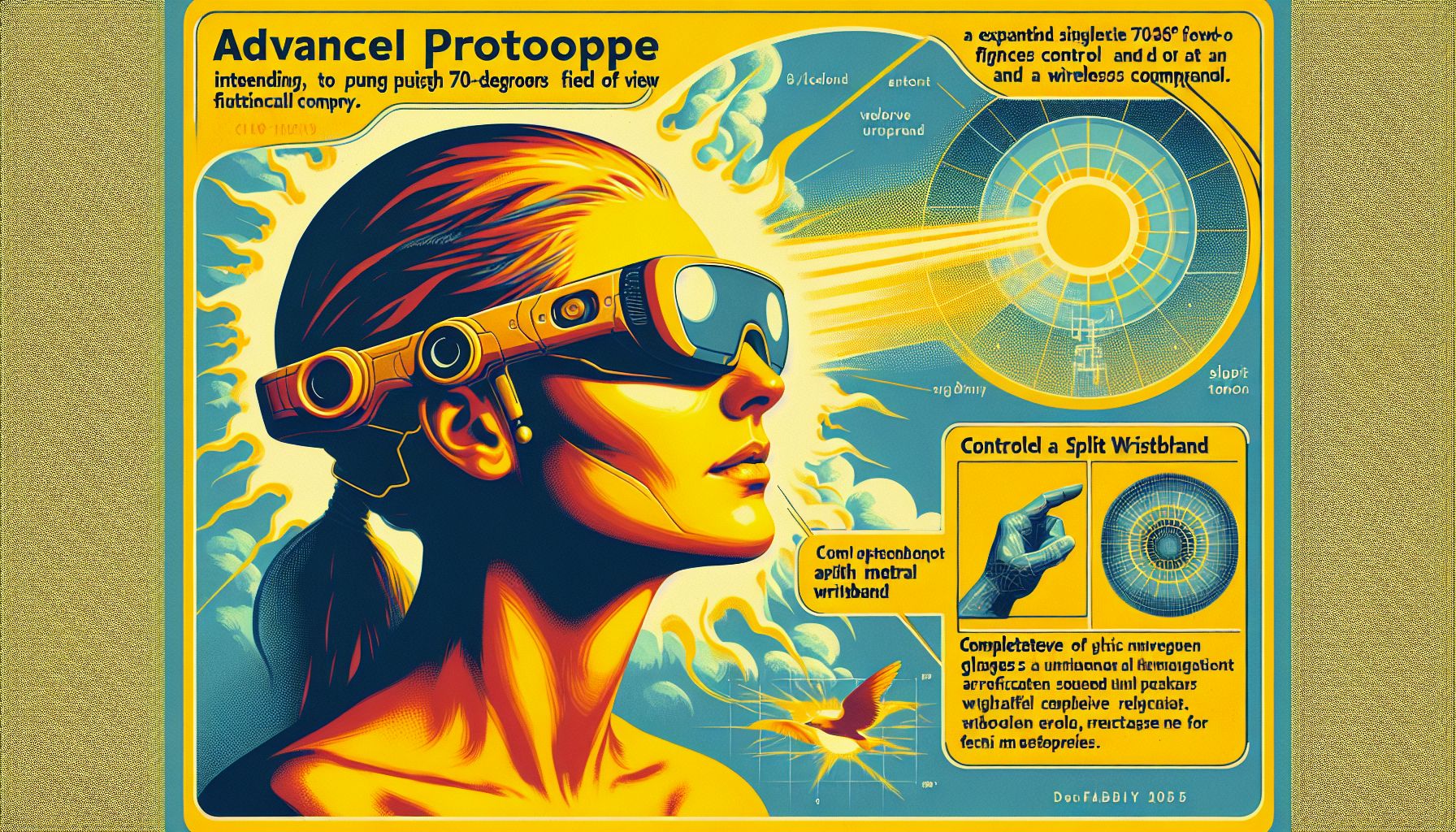Meta's Orion: AR Glasses Push Boundaries of Wearable Tech

Menlo Park, Thursday, 26 September 2024.
Meta unveils Orion, prototype AR glasses boasting a 70-degree field of view and neural wristband control. Not yet consumer-ready, Orion aims to revolutionize computing with AI integration and wireless design, potentially replacing smartphones in the future.
A Glimpse into the Future of Computing
Meta’s unveiling of Orion at the Meta Connect 2024 event marks a significant leap in augmented reality (AR) technology. Described as ‘the most advanced AR glasses ever made,’ Orion integrates cutting-edge AR and AI technologies, aiming to redefine how we interact with digital information. With a 70-degree field of view, these glasses allow AR images to occupy a substantial portion of the user’s vision, offering an immersive experience that could potentially replace traditional screens.
Innovative Features and Design
The Orion AR glasses come equipped with a neural wristband control, which uses electromyography (EMG) sensors to detect electrical impulses from the skin, translating them into actions. This allows for complex gestures and feedback without the need for direct hand visibility. The glasses also feature a wireless external processor puck, akin to the Apple Vision Pro’s battery pack, which connects seamlessly to the device. Combined, these components enable Orion to operate independently of smartphones or laptops, highlighting its potential to become a standalone computing device.
AI Integration and Practical Applications
Meta has integrated a powerful AI assistant into Orion, capable of understanding the user’s surroundings and providing contextual information or instructions. For instance, the glasses can scan ingredients and generate smoothie recipes, or even play a game of 3D-Pong with the user. This AI functionality underscores the glasses’ potential to enhance daily tasks and multitasking capabilities, making them a versatile tool for both personal and professional use.
Challenges and Future Prospects
Despite its promising features, Orion is currently a prototype and not ready for the consumer market. Meta acknowledges that the technology is too complex and expensive for mass production at this stage. However, ongoing development aims to optimize the display quality, reduce the form factor, and build at scale for affordability. The company estimates that a consumer version of Orion may take several years to develop, but the promise of such advanced AR glasses points to a future where smartphones could become obsolete.
Conclusion
Meta’s Orion AR glasses represent a groundbreaking step in the evolution of wearable technology. By combining a wide field of view, neural input control, and advanced AI integration, Orion has the potential to revolutionize how we interact with digital content. While it may be several years before these glasses are available to consumers, the innovation demonstrated by Meta at the Meta Connect 2024 event sets a new benchmark for the future of augmented reality and personal computing.

